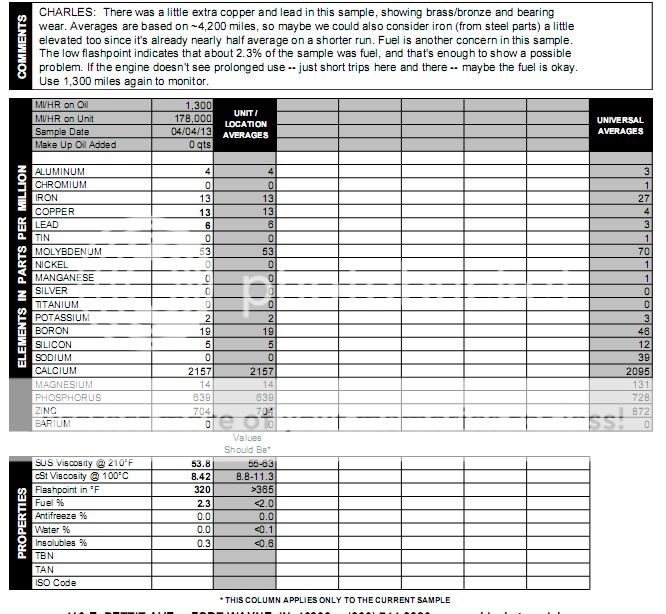Guys:
Sent my oil off to blackstone labs and got the below back as a report. Should I be concerned. She has around 145,000 miles on her 1988 Renix 100% stock. Everything is operating well and the only thing origional in her fuel/emissions system is the pressure regulator and the egr valve. All other sensors have been replaced at one time or another. She runs like a top and the Renix ECM has no hiccups (no high idles, crank position sensor drama etc...)
She does have Ford Motor Sport fuel injectors (replaced the leak-o-matic Bendix injectors around 1999 with Orange mustang injectors)
I am not very concerned as she only gets driven about 100 miles a month. I change the oil once a year with full synthetic regardless of mileage (about 1200 miles a year) all of her trips are short.

Sent my oil off to blackstone labs and got the below back as a report. Should I be concerned. She has around 145,000 miles on her 1988 Renix 100% stock. Everything is operating well and the only thing origional in her fuel/emissions system is the pressure regulator and the egr valve. All other sensors have been replaced at one time or another. She runs like a top and the Renix ECM has no hiccups (no high idles, crank position sensor drama etc...)
She does have Ford Motor Sport fuel injectors (replaced the leak-o-matic Bendix injectors around 1999 with Orange mustang injectors)
I am not very concerned as she only gets driven about 100 miles a month. I change the oil once a year with full synthetic regardless of mileage (about 1200 miles a year) all of her trips are short.

